

Tao Te Ching
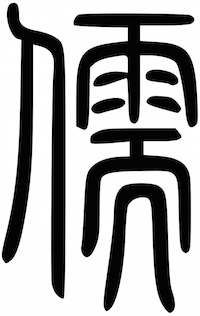
Confucianism
In different places and times in history, called either a simple way of life, a religion, a philosophy, a way of governing, or simply a tradition; Confucianism became well known because of Confucius who only thought of himself as transmitting wisdom from the past, from a golden age of China during the Zhou dynasty. It came in and out of favor during the centuries, competed against Taoism and Buddhism, complemented them, and merged in significant ways to form the Neo-Confucianism becoming a major influence under Zhu Xi during the 12th century. A tradition of the words over these sense and the dominant influence on Chinese culture and politics until 1905, it was at first blamed for China’s weaknesses and now credited for establishing the work ethic that’s created the rapidly rising Asian economies of today.
Quotes (64)
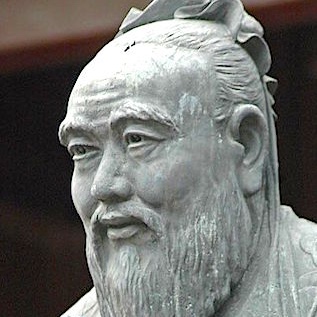
“At 15, I set my mind and heart on learning. At 30, I stood on my own. At 40 I had no doubts. At 50 I knew heaven’s decree. At 60 my ears were in accord. At 70 I followed the desires of my mind -and-heart.”
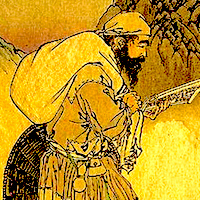
“From the birth of mankind until now, there has never been the equal of Confucius… I have all my life had the sky over my head, but I do not know its height, and the earth under my feet, but I do not know its thickness. In my serving of Confucius, I am like a thirsty man who goes with his pitcher to the river, and there he drinks his fill, without knowing the river's depth.”
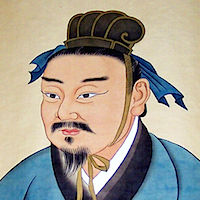
“Knowing how to cultivate oneself is to know how to govern others; knowing how to govern others is to know how to govern the empire, the state, and the family.”
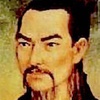
“Confucians believe firmly in the existence of fate and propound this doctrine... if officials believe such ideas, they will be lax in their duties; and if the common people believe them, they will neglect their tasks.”

“Confucians corrupt men with their elaborate and showy rites and music and deceive parents with lengthy mournings and hypocritical grief. They propound fatalism, ignore poverty, and behave with the greatest arrogance... Such men are the destroyers of the people of the world!”
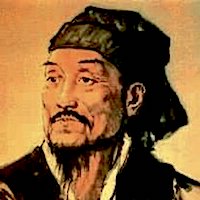
“The gentleman knows that whatever is imperfect and unrefined does not deserve praise. ... He makes his eyes not want to see what is not right, makes his ears not want to hear what is not right, makes his mouth not want to speak what is not right, and makes his heart not want to deliberate over what is not right. ... For this reason, power and profit cannot sway him, the masses cannot shift him, and nothing in the world can shake him.”
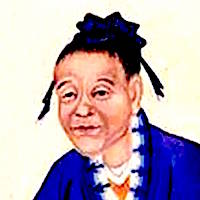
“The world has known innumerable princes and worthies who enjoyed fame and honor in their day but were forgotten after death, while Confucius, a commoner, has been looked up to by scholars for ten generations and more. From the emperor, princes and barons downwards, all in China who study the Six Arts take the master as their final authority. Well is he called the Supreme Sage!”
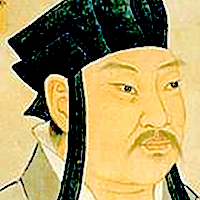
“Cultivating ourselves is like a bow, straightening our thoughts like arrow.”
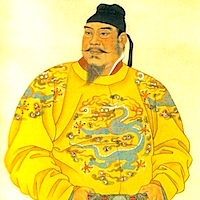
“If I decrease expenses and lower taxes, permit only honest officials, the people will have enough food and clothing. This will do more to abolish robbery than the most severe punishments.”
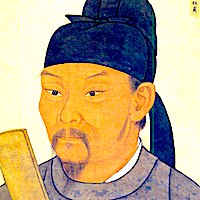
“When good governance prevails in the empire, [the scholar] is in evidence. When it is without good governance, he withdraws. It is better, O scholar, to retire early. After all, what is Confucianism to us? Confucius and the bandit So-and-So: Are they not both dust?”
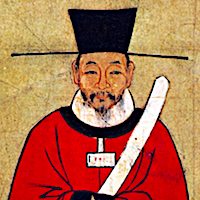
“The Five Joys:
1. Long life
2. Wealth
3. Health—soundness of body, serenity of mind
4. Love of Integrity
5. An end crowning the life”

“Confucius relied on kindness and justice, ritual and music to order the kingdom. Lao-tzu’s only concern was to open people’s minds”
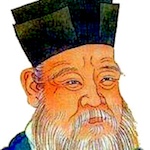
“The sovereign without the small man suffers from hunger; the small man without the sovereign lives in chaos.”
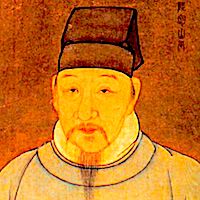
“The words of the sages and men of wisdom are spread out in books... They may be compared to the prescriptions in a medicine basket... However, what a good doctor uses need not be extraordinary, it need only be good enough to cure an illness.”
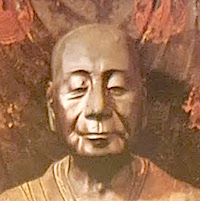
“When we asked our school teacher why he took naps, he said 'Like Confucius who dreamed about ancient sages, I go to dreamland and meet them.' When we took naps however he would get angry so we told him that we also went to meet Confucius and the sages. When he challenged us asking what they said, one of us told him, 'We asked them if our schoolmaster met them every afternoon but they said they had never met any such fellow.'”
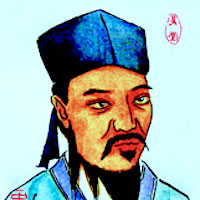
“Whenever there is help, there must be harm. But when Heaven helps, it doesn’t harm, because it helps without helping. Action is the start of struggle. Wherever there is action, there must be struggle. But when sages act, they don’t struggle, because they act without acting.”
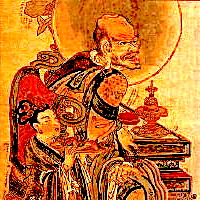
“Though you have talent, do not trust in it. Confucius himself was unsuited to his times... Do not trust in promises. Truth is rare.”
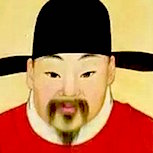
“Once the Buddhist scriptures are penetrated, the sayings of Confucius and Mencius will be understood immediately—there are not two separate principles.”
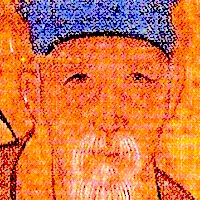
“Confucianists and Buddhists quarrel and dispute with each other because the Confucianists do not read Buddhist books annd the Buddhists do not read Confucianist books Both are talking about what they do not know.”
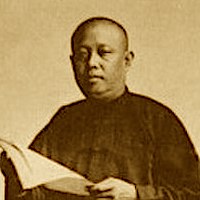
“The differences between Confucius and Lao Tzu are no more significant than the preference for wheat in North China and rice in the South.”
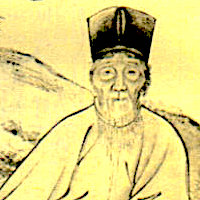
“The daily decline in the art of learning is due to the lack of clarification of the differences between Confucianism and Buddhism.”
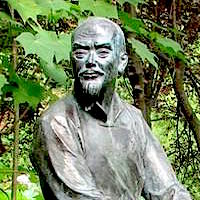
“No one knows the art of living better than Confucius. I know that because he did not sleep like a corpse or sit like a statue.”
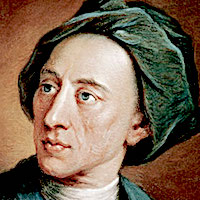
“Superior and alone, Confucius stood
Who taught that useful science,—to be good.”
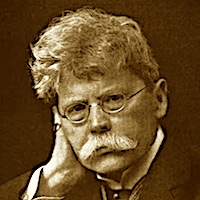
“One of he essential figures to be considered in connection with any history of China… There can be do doubt that Confucius has had a greater influence on the development of the Chinese national character than many emperors taken together.”

“Although Confucian philosophy has become the guiding star of the Chinese government, Lao Tzu has taken a firm hold on the hearts of the people. In the progress of time, his figure has grown in significance into the stature of a Christ-like superhuman personality.”
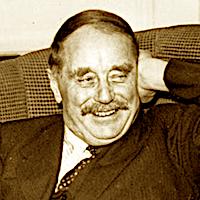
“Neither Gautama nor Lao Tzu nor Confucius had any inkling of this idea of a jealous God who would not tolerate any lurking belief in magic or old customs… The intolerance of the Jewish mind did keep its essential faith clear and clean”

“the teaching of Confucius was not so overlaid, because it was limited and planin and straightforward and lent itself to no such distortions.”

“I must confess that I am unable to appreciate the merits of Confucius. His writings are largely occupied with trivial points of etiquette, and his main concern is to teach people how to behave correctly on various occasions. When one compares him, however, with the traditional religious teachers of some other ages and races, one must admit that he has great merits... It certainly has succeeded in producing a whole nation possessed of exquisite manners and perfect courtesy. Nor is Chinese courtesy merely conventional; it is quite as reliable in situations for which no precedent has been provided.”
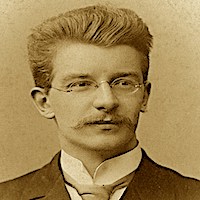
“since Confucianism has a broad common base with Taoism, the union of these two sets of ideas does not cause a loss in coherence.”

“To Confucianism, the final principle of an undivided One is the Tai Chi (the great ridge-beam)... the word Tao here has an inner-world significance and means the 'right way;' on one hand the way of Heaven, on the other, the way of man.”
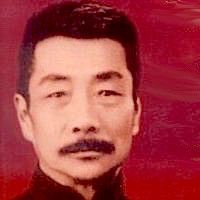
“Since the creation of heaven and earth, men have been eating each other. I have been living in a place where for 4000 years they have been eating human flesh… But if you will just change your ways immediately, then everyone will have peace.”
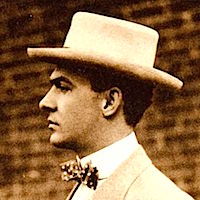
“Confucius had the wisdom to forbid that a religion be based on his personality or codes; and his injunction against graven images has fared better than a similar injunction in the Ten Commandment. Hence Confucius continues unchanged as a realistic philosopher, an early pragmatist, while Lao Tzu and Jesus, his ethical fellows, have been tampered with by prelates, have been more and more removed from human living and relegated as mystics to a supernatural world.”

“Confucius so ritualized his ethical culture that conduct of life took on forms similar to those of religion, whereas Lao Tzu spurned both religious and civil ceremony as misleading and harmful, his faith and conduct depending upon no outward prop but upon inner accord with the conscience of the universe.”

“The success of Confucius was posthumous, but complete… after death had removed the possibility of his insisting upon its realization… and for 2000 years, the doctrine of Confucius moved and dominated the Chinese mind.”

“Called by the Middle Ages, The Philosopher, Confucius alone has had as great an influence. But it is not that we love him; his texts expound so monotonously a passionless moderation that—after feeling the radiance of Plato—freeze at the touch of his tempered mind. But, an intellect of almost unbelievable depth and range, we shall not find again another name that so long inspired and enthralled the minds of men.”

“Confucianism checked too thoroughly the natural and vigorous impulse of mankind…kept women in supine debasement… froze the nation into a conservatism hostile to progress... no room was left for pleasure and adventure, little for friendship and love”
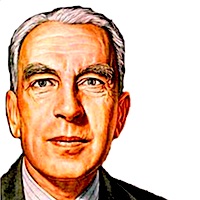
“This burst of spiritual activity... the Confucian humanism of the 5th century BCE... was ephemeral. It degenerated from a study of human nature into a system of ritualized etiquette. In the administrative sphere it became a tradition that every administrative act required the sanction of historical precedent.”

“Somehow I had learned from Thoreau, who doubtless learned it from Confucius, that if a man comes to do his own good for you, then must you flee that man and save yourself.”
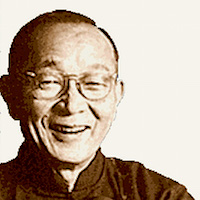
“Confucians worship culture and reason; Taoists reject them in favor of nature and intuition, and the one who rejects anything always seems to stand on a higher level and therefore always seems more attractive than the one who accepts it... Lao Tzu's aphorisms communicate an excitement which Confucian humdrum good sense cannot. Confucian philosophy is a philosophy of social order, and order is seldom exciting.”

“When you call yourself an Indian or a Muslim or a Christian or a European, or anything else, you are being violent… separating yourself from the rest of mankind.”

“Confucianism stood for a rationalized social order through the ethical approach, based on personal cultivation. It aimed at political order by laying the basis for it in a moral order, and it sought political harmony by trying to achieve the moral harmony in man himself. Thus its most curious characteristic was the abolition of the distinction between politics and ethics.”

“I would characterize the Confucian political ideal as strictly anarchism, in which moral culture of the people making government unnecessary become the ideal. If it is asked why the people of Chinatown in New York never have any use for the the police, the answer is Confucianism. There never were any police in China for 4000 years.”
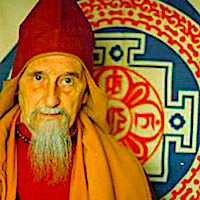
“Confucius saw in their wisdom a guide for statesmen, prime ministers and people like that. So his commentaries are very much concerned with how a man who has mastered the I Ching and mastered himself can be of use to his emperor or ruler in helping him to guide the State.”
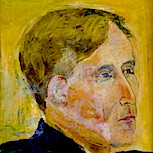
“The prejudice against shamanism went hand in hand with the rise and spread of Confucianism. It was founded, I think, on the saying attributed in more than one place to Confucius that one should 'revere Spirits, but keep them at a distance.'”
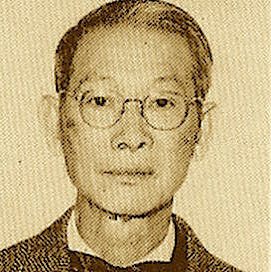
“Taoism wants the concentration of chi (vital force) to be weak, whereas Confucianism wants it to be strong... Such is the contrast between Confucianism and Taoism.”

“[Taoists] not exalting worthy men of superior talent and virtue is directly opposed to that of the Confucianists who honor them”
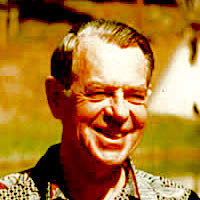
“In the traditional Orient and generally in all traditionally grounded societies, the individual is cookie-molded. His duties are put upon him in exact and precise terms, and there’s no way of breaking out from them.”
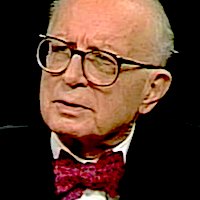
“As the centuries passed, the fragmentary teachings of Confucius were petrified into 'Confucianism.' The very word, which would have horrified Confucius, seems to have been invented about 1862 by European Christians to fit their simplistic view of the 'religions' of the non-Christian world.”

“Unlike the Western world of surprising Creation, of man at war with nature; the world of Confucius transformed by Taoist and Buddhist currents saw man at home among transformations, procreations, and recreations.”
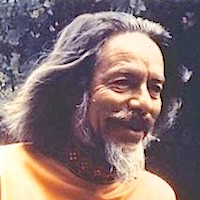
“Confucianism preoccupies itself with conventional knowledge... presides over the socially necessary task of forcing the original spontaneity of life into the rigid rules of convention...The individual defines himself and his place in society in terms of the Confucian formulae... a task that involves not only conflict and pain, but also the loss of that peculiar naturalness and un-self-consciousness for which little children are so much loved, and which is sometimes regained by saints and sages.”
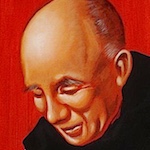
“Confucius may have had access to the manifest aspects of the Tao ‘that can be named,’ but the basis of all Chuang Tzu’s critique of Ju philosophy is that it never comes near to the Tao ‘that can not be named,’ and indeed takes no account of it.”
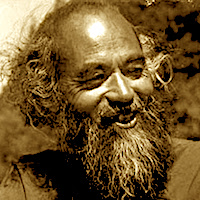
“Whereas Confucianism is concerned with day-to-day rules of conduct, Taoism is concerned with a more spiritual level of being... The essence of Taoism is contained in the 84 chapters of the book [Tao Te Ching]—roughly 5000 words—which have for 2500 years provided one of the major underlying influences in Chinese thought and culture, emerging also in proverbs and folklore.”
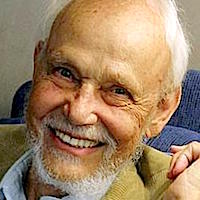
“Reserved as he [Confucius] was about the supernatural, he was not without it; somewhere in the universe there was a power that was on the side of right.”

“That in China the scholar ranked at the top of the social scale may have been Confucius’ doing, but Taoism is fully as responsible for placing the soldier at that bottom.”

“Confucius stresses social responsibility, Lao Tzu praises spontaneity and naturalness… Confucius roams within society, Lao Tzu wanders beyond.”
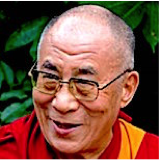
“I maintain that Buddhism, Christianity, Confucianism, Hinduism, Islam, Jainism, Judaism, Sikhism, Taoism, and Zoroastrianism all hold up love as an ideal, seek to benefit humanity through spiritual practice, and strive to make their followers better people.”
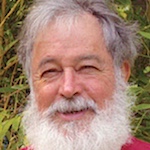
“Ranked with Confucius and Hsun Tzu as the foremost teachers of the philosophy knows as Confucianism, [Mencius] studied with Confucius' grandson. The work that bears his name records his conversations with his disciples and various rulers of the day.”
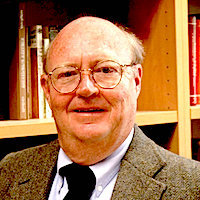
“In Confucianism, the whole of an ethical life can be summarized by ‘doing unto others as you would have them do unto you;’ the highest calling is to be true to your conscience, to your true moral nature; in government, that rulers must be educated and must govern for the benefit of their fellow citizens rather than for their own pleasure.”

“Confucius taught the art of government as it should be. Machiavelli taught government as it is in fact… concerned with power, how to get and how to keep it. The ruler governs for his own benefit, not for the benefit of those he rules…. as useful today to corporate CEOs as it is to politicians, ethics consists of one maxim: ‘Do others in before they do you in.’”
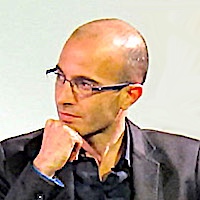
“The history of ethics is a sad tale of wonderful ideals that nobody can live up to. Most Christians did not imitate Christ, most Buddhists failed to follow Buddha, and most Confucians would have caused Confucius a temper tantrum. In contrast, most people today successfully live up to the capitalist–consumerist ideal.”
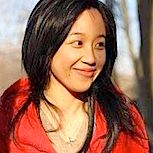
“Confucianism is primarily concerned with rites or propriety, a body of rules governing action in virtually every area of life.”
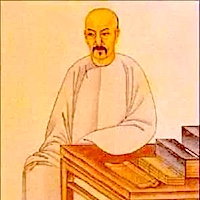
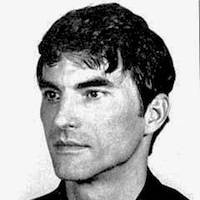
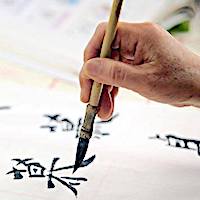
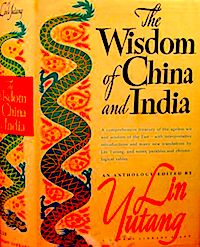
Comments (1)